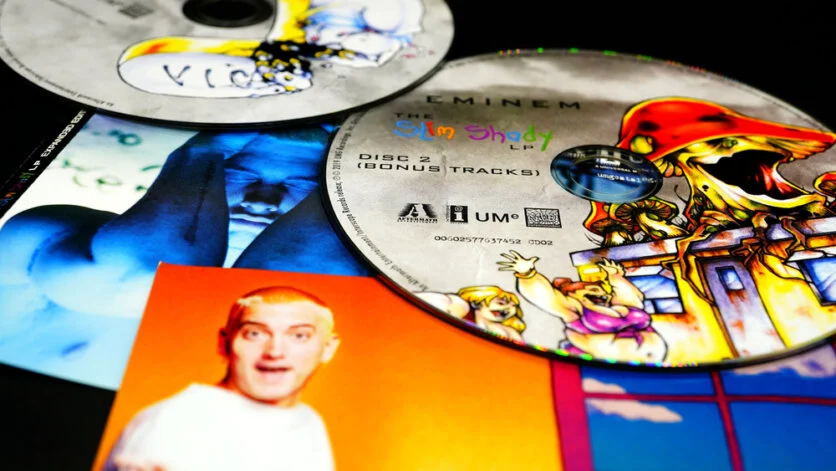Spotify has won a long-running mechanical licensing-focused infringement lawsuit against Eminem’s Eight Mile Style, albeit the outcome could have been different.
After a multi-year legal struggle, Spotify has won a court complaint filed against it by Eight Mile Style, co-publisher of 242 of Eminem’s tracks. The publisher claimed that the Stockholm-based company streamed the tracks without authorization after failing to get sufficient mechanical licensing for the compositions in question.
The weird thing about this case is that Spotify won despite the fact that the court determined that the streaming behemoth did not have a license to stream those music. Technically, Spotify was wrong — yet, as previously stated, this situation was convoluted.
The court also determined that if Spotify was found guilty of copyright infringement, Kobalt Music Group would be responsible for paying the cost. So, what happened?

At its root, this is a narrative about how complicated music administration can be, particularly in an era when music rights are a valuable commodity.
Eight Mile Style, which is not technically linked with Eminem, sued Spotify in August 2019 alleging that the streaming service lacked the necessary licenses to stream its 242 Eminem recordings. Eminem was reportedly unaware of the case until after it had been filed.
According to Eight Mile, Spotify directed mechanical licensing and rights management agency Harry Fox Agency (HFA) to send “purported ‘royalty statements’ out” even though Spotify and HFA “knew the compositions were not licensed” under a compulsory license. Eight Mile claimed that, despite “billions” of streams, Spotify had neither “accounted to Eight Mile or paid Eight Mile for these streams,” but rather provided “random payments of some sort” that only accounted for a portion of the total streams.
READ MORE: Tyler The Creator Regrets Criticizing Eminem’s Album Recovery
Furthermore, Eight Mile alleged that Spotify had sent letters of intent to obtain a compulsory license to the US Copyright Office, claiming that it did not know who owned the compositions behind the Eminem recordings. Eight Mile claimed that some of those notices were back-dated by years, a violation of the law at the time.
The initial action also challenged the Music Modernization Act (MMA), which had only been passed a year earlier. The MMA established the Mechanical Licensing Collective (MLC) to collect mechanical royalties in the United States while also limiting the liability that streamers like Spotify would face if they were detected playing unlicensed music.
Essentially, Spotify and other DSPs obtained ‘get out of jail free cards’ after the MMA became law for previous offenses, however Eight Mile deemed that component of the MMA “an unconstitutional denial of due process.”

About a year following the initial complaint, Spotify filed a third-party complaint against Kobalt, naming their mechanical licensing section and administration as defendants. Spotify said that because they were licensed by Eight Mile’s agent, Kobalt, to reproduce and distribute the works, they are responsible for Eight Mile’s problems.
Spotify claimed that Kobalt misled them into believing that they controlled the administration of Eight Mile’s catalog and had committed to indemnify Spotify in the case of a lawsuit over Eight Mile’s rights. Furthermore, Spotify stated that for years, Eight Mile had no problems with the royalty payments it received through the Harry Fox Agency. Kobalt called Spotify’s charges “baseless.”
The parties argued back and forth over the following four years, with Eight Mile charging conspiracy and, at one point, a disagreement over whether Spotify CEO Daniel Ek would be deposed in the lawsuit. The court determined that he would; eventually, the parties asked the court to grant summary judgment so that the case did not have to go to trial.
READ MORE: Eminem Reignites The Machine Gun Kelly Feud With A Harsh Four-Word Insult
Judge Aleta A. Trauger issued her summary judgment on August 30th, stating that Eight Mile engaged in “scheming” to extract as much money as possible from Spotify.
Judge Trauger decided that Eight Mile attempted to exploit the law and the convoluted ownership and administration structure unique to Eminem’s works “to enrich itself” by concealing the compositions’ ownership.

The court determined that Spotify has been broadcasting the Eminem music in question since the service’s introduction in the US in 2011. “For the entirety of that period, Spotify has paid royalties associated with that streaming to Eight Mile Style’s collection agent, Kobalt, as if a license had been in place […] and Kobalt provided Eight Mile Style with a quarterly document summarizing the royalties being paid.”
However, despite being Eight Mile’s collecting agent, Kobalt was not authorized to license the usage of Eight Mile’s music in the United States or Canada because those rights were transferred from Kobalt to Bridgeport in 2009. Eight Mile took no effort to notify anyone that license rights had been transferred, not issuing a letter of direction as is customary.
Spotify may have been unsure of its rights at times due to music business practices. By all accounts, it was common procedure to license catalogs without understanding exactly what was included,” noted Judge Trauger.
Ultimately, Kobalt is liable, but because Spotify is not compelled to pay damages for copyright infringement, Kobalt will simply have to pay “reasonable attorney’s fees and expenses.” Given how long the case took, that might still be a significant sum.
Radiant TV, offering to elevate your entertainment game! Movies, TV series, exclusive interviews, music, and more—download now on various devices, including iPhones, Androids, smart TVs, Apple TV, Fire Stick, and more.


